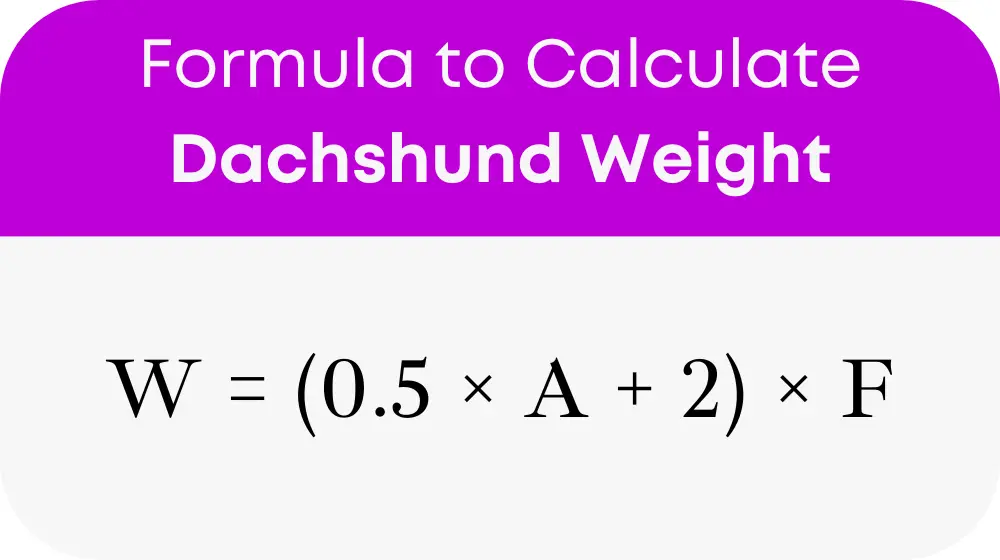The Dachshund Weight Calculator is a specially designed tool that estimates the adult weight of your dachshund. Given the breed’s susceptibility to obesity and related health issues, such as spinal problems, maintaining an ideal weight is paramount. This calculator employs a straightforward formula to predict your pet’s adult weight, allowing for tailored nutrition and exercise plans from an early age.
Formula of Dachshund Weight Calculator
The calculator uses a simple mathematical formula:

Here, W represents the estimated adult weight of the dachshund in kilograms (kg), A is the age of the dachshund in weeks, and F is a factor based on the dachshund’s size: 0.82 for standard dachshunds and 0.50 for miniature dachshunds. This formula enables owners to project the adult weight of their dachshunds, assisting in health and nutrition planning.
Table for General Use
| Age in Weeks | Estimated Adult Weight for Standard Dachshund (kg) | Estimated Adult Weight for Miniature Dachshund (kg) |
|---|---|---|
| 8 | 4.92 kg | 3.00 kg |
| 12 | 6.56 kg | 4.00 kg |
| 16 | 8.20 kg | 5.00 kg |
| 20 | 9.84 kg | 6.00 kg |
Example of Dachshund Weight Calculator
For a practical application, consider a standard dachshund puppy that is 12 weeks old. Using the formula:
W = (0.5 × 12 + 2) × 0.82 = X kg
This calculation estimates the puppy’s adult weight, which is crucial for making informed decisions regarding diet and exercise.
Most Common FAQs
The calculator provides a close estimate of your dachshund’s adult weight. However, factors like genetics, diet, and exercise can influence the actual weight. Always consult a veterinarian for personalized advice.
The formula is calibrated for puppies at least 8 weeks old, as this age provides a more reliable estimate of adult size. For younger puppies, consult your vet for guidance.
Regular monthly checks are recommended for puppies to monitor their growth. For adult dachshunds, every 3 to 6 months is sufficient, unless your vet advises otherwise.